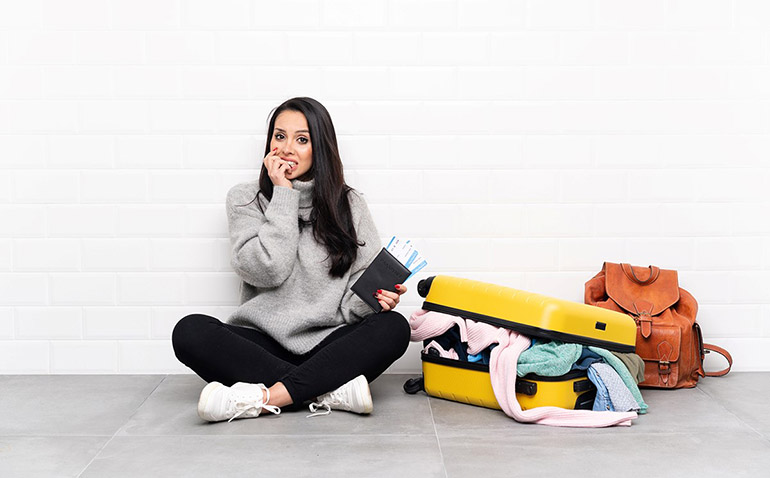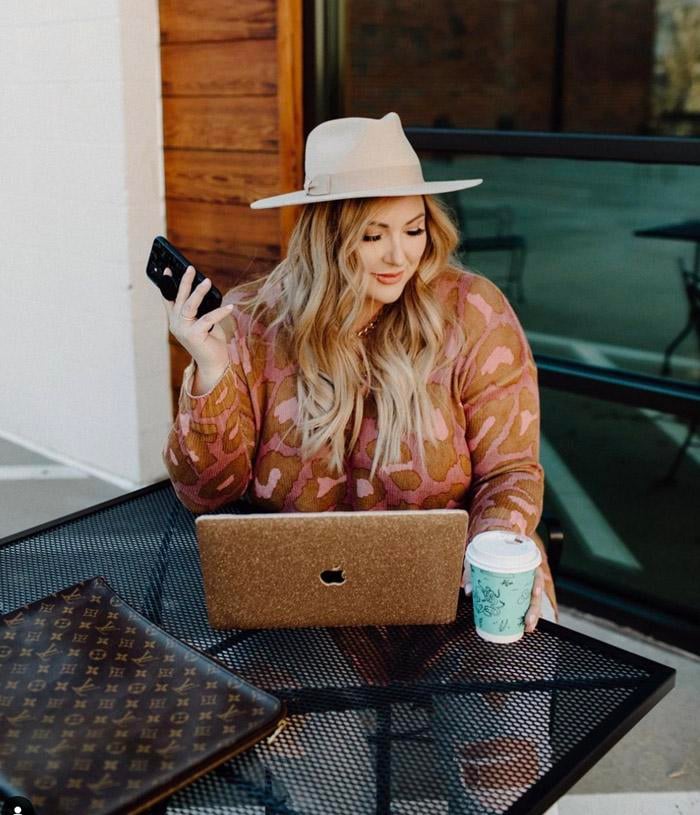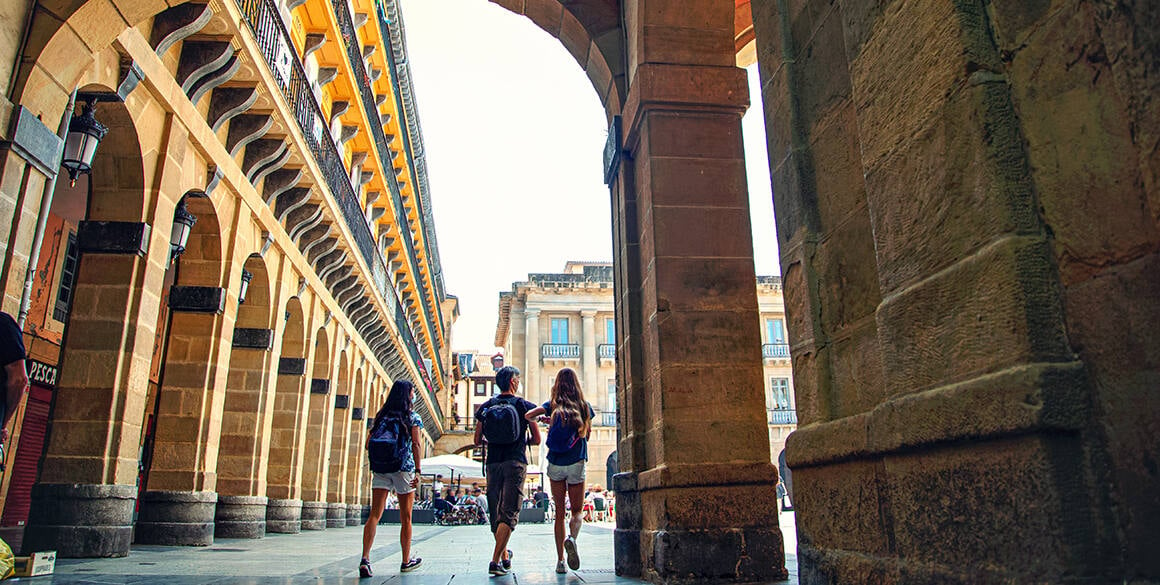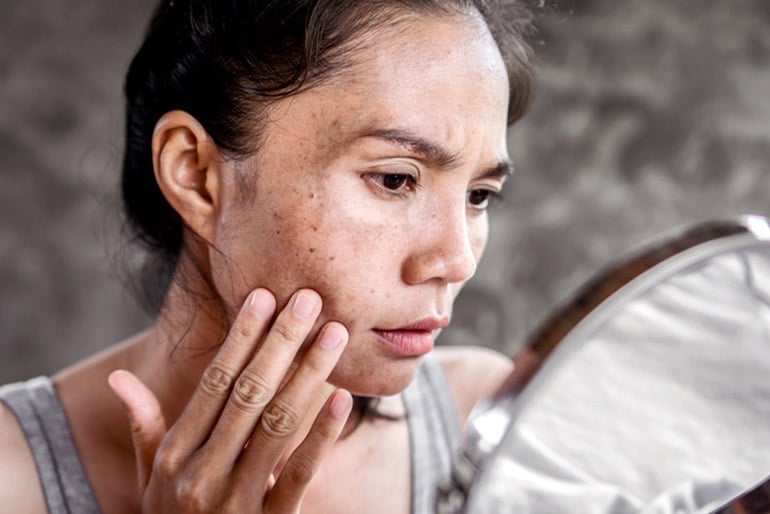Travel is exciting. It’s thrilling and sparks change, self-discovery, and actual discovery. But for some, all of that sounds terrifying, especially if it’s been some time since they’ve traveled. As with all things that people fall out of practice with, anxiety builds with anticipation and decreased habit.
Luckily, ALG Vacations® was able to tap into the professional advice of Jules Jean-Pierre, therapist at Grow Therapy, for some expert tips on how to alleviate different types of travel anxiety.
Generalized Travel Anxiety
Adhere to Your Prescriptions
For people who already suffer from anxiety, the prospect and various aspects of travel can become triggers. As the first line of defense, “If you are prescribed medication for your anxiety, I recommend taking it at an appropriate time so that it helps for the duration of the flight,” Jean-Pierre advises. This does not mean to seek it out if it’s not already part of the person’s lifestyle, however, or adjusting the dosage. It simply means responsibly accounting for it and using it as the aid it is intended to be.
No Medication? Try Meditation
If medication is not already part of the person’s lifestyle, there are various coping mechanisms she suggests for healthily bringing down the intensity of what they are feeling, such as meditation and breathing exercises.
“During one of my tips, I discovered that one of the channels on the flight was a meditation channel!” So look for that when you’re browsing the in-flight entertainment options. And of course, there are apps you can pre-load to your phone. Calm, Shine, Serenity, Liberate, Headspace, Sleep Sounds, and Exhale are all good options she stands behind, but “I personally would listen to Exhale,” she confides. “It’s an emotional well-being app designed for women of all colors and it specifically speaks to assisting me in tapping into what they call ‘soul medicine.’”
In the absence of an app, Jean-Pierre suggests meditating on your own to a specific song or instrument on repeat, “which is soothing and meditative; this helps to keep [people] feeling calm.” For more visual folks, she recommends guided imagery to “help their mind focus on imagery away from the plane,” taking them out of that immediate literal flight environment.
Take a Deep Breath … Or Several
Thank goodness we can all breathe freely in the sterilized, constantly circulating air in a plane, since breathing exercises are a great way to manage anxiety of any kind. But don’t wait until you board to master this technique! Jean-Pierre says, “It’s important to practice deep breathing so that you are prepared to use it and are aware of when it works best for you, or even if there’s a possibility it may not be as effective.
“There are many types of breathing exercises that can be found online, so it’s important to choose something that’s easy to recall during times of stress. I like box breathing,” which is when the person breathes out slowly, releasing all the air from their lungs, then in through their nose slowly while counting to four. A four-count hold follows, then an exhale for that same length of time and another hold before beginning the cycle again.
This is commonly taught in yoga classes as well, so yogis may be able to tap into this skill set to bring down their stress level in real-world application.
Predictive Anxiety
Motion Sickness
Fear of what could happen can lead to travel anxiety. One of the most common concerns Jean-Pierre encounters is related to motion sickness.
“This causes an uncomfortable experience due to sickness and feeling judged because they have to get up a number of times to be in the restroom,” she says. The impending dread of feeling poorly can also contribute to stress about upcoming travel.
She advises preparing for it by taking motion sickness medication, which is commonly available over the counter. Acupressure bracelets also work for some people. Other tips include choosing an aisle seat for beating a hasty retreat, and being mindful of what you eat. “Bring, pack, or ask for snacks that settle your stomach,” she recommends. While this may mean passing on the booze, coffee, or airport pastries, the benefit can far outweigh the sacrifice.
Misbehaving Children
Another unpredictable factor: the behavior of others. Make the “others” little humans you’re responsible for and the pressure is on.
“Families with small children are often fearful that their child will be crying during a significant portion of the flight and that other passengers will have a negative response and judge them,” she notes. This fear of judgment, not the actual behavior of the children, is actually what creates the pre-travel anxiety.
Again, an ounce of prevention is worth a pound of cure here. As much as adults can distract themselves with a good movie or book, this approach may work for children as well. Just don’t forget their personal child-safe headphones! Because just as bad as a screaming toddler is a shrieking tablet dinging on speaker.
Travel Props
Some suffer from situational anxiety, where their anxiety may be triggered in the moment of travel. For those instances, the right travel products can help bypass the panic and help travelers get right to relaxing.
The value of noise-cancelling headphones cannot be understated. Not only are they courteous to your fellow passengers (are you a bad airplane neighbor? Find out here!), “they can ease any tension from noise on the plane … and help create a space of calm or neutrality,” Jean-Pierre points out.
“For travelers that respond well to touch for the purposes of feeling grounded, I would recommend a weighted blanket if allowed,” she says. While this is impractical for flying, this can be comforting for ground travel and road trips. California Design Den’s thick-yarn knit is an exceptional throw, with an open weave that stays cool and is far more breathable than your standard.
However, nothing someone who experiences travel anxiety can pack can be more helpful than knowing themselves and their triggers.
“If a person is in therapy, it’s important to work on determining the root cause of the travel anxiety and work on it with [their] therapist. Each person is unique to their trauma and associated anxiety … Our brains are unique in the many pathways of association to painful memories, so that’s something that can be discovered in session with a therapist,” she says.
No matter the type of travel-related anxiety the would-be traveler experiences, the crux is to “practice, practice, practice,” she emphasizes. “This is essential to having the best possibility of successful flight. Each type of anxiety (generalized or panic, acute stress, or post-traumatic stress disorders, and others) is different, but the root for all is fear. Therefore the type of anxiety you have doesn’t matter as much as knowing and practicing the right coping skills that get you through. Knowing there’s an issue is a great first step; the next is deciding to do something constructive about it.”
Because life is too short not to take the trip. With these tips, travelers can regain their confidence in making the most of their opportunity to live bigger and experience the world.
Travel concerns health-related? Then make sure you’re prepared for the worst, even as you plan for the best. Here’s what your insurance covers and how you can supplement for emergencies. Read https://www.algvtravelblogue.com/posts/unsure-about-medical-coverage-while-traveling-heres-what-you-need-to-know/






